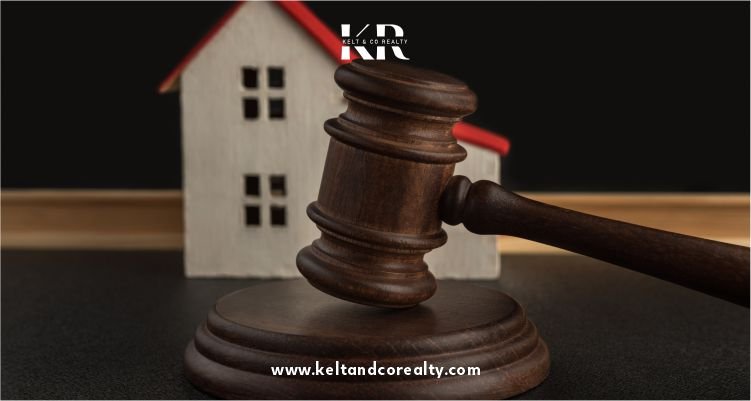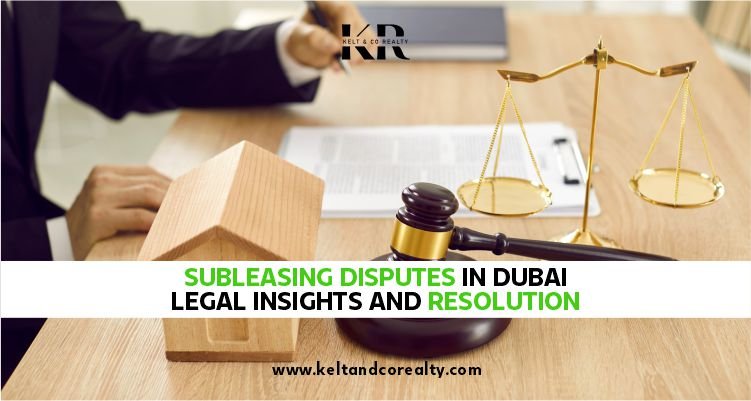Subleasing Disputes in Dubai: Legal Insights and Resolution
Dubai skyscrapers, which are globally recognized for their high culture and rapid economic development, have also earned a reputation as a preferred spot for real estate investment. The tenants and landlords usually find themselves in an opposing position as a consequence of the increasing demand for rental houses on the real estate.
This is why it is of utmost importance to know the legal intricacies of subleasing disagreements in Dubai for both parties to navigate the real estate seamlessly. Subleasing disputes in Dubai are mainly governed by the relationship between landlords and tenants, who should have a deep knowledge of the applicable legal acts.
Rental properties are now a booming business and the number of conflicts between landlords and tenants is climbing up. The lease disputes may emerge due to several reasons, which may as well include disagreement on conditions, house failure, and unsettled obligations as per the contract terms.
For both landlords and tenants to comprehend their rights and responsibilities, it is paramount that the subject should be aware of Dubai’s tenancy laws when involved with subleasing disputes.
Landlord Rights in Dubai:
Before discussing sub-leasing disputes and the rights of landlords in Dubai, you need to understand what subleasing in Dubai is and how it works. The Dubai Tenancy Law gives the landlords some of the rights as stated in the law. These rights combine rights such as the right to timely rent payment, the right to increase the sublease rentals, the right to evict tenants under certain circumstances, and the right to deliver and service your property.

How Does a Sublease Work?
A sublet agreement is a contract between a tenant and another person, the subtenant, in which the tenant agrees to sublease the whole or half of the property they rent. This translates to an original tenant becoming a sublessor, as a result of which, the original tenant keeps some interest in the property and becomes responsible for collecting rent from the subtenant and their compliance with the original lease agreement.
The sublease contract necessitates permission from the owner and in writing, the sublease agreement is enlisted outlining the sublease terms. In case the situation with both the original tenant and that subtenant remains the same, the duration of the sublease coincides with either the date of the agreement expiration or the date of the agreement being broken.
Difference Between Sublease and Assignment:
Sublet vs. assignment is a situation in which a tenant keeps the space and makes use of it while at the same time agreeing to pay the rent to the landlord. Conversely, a transfer results in the whole lease agreement being taken by the new tenant which makes the original tenant off the hook from all duties. A sublease renews a link between the former tenant and the landowner, while an assignment totally loses connections. Two of the ways of doing this are landlords signature or both, which might have different legal consequences.
Common Reasons for Subleasing Disputes:
Subletting conflicts between tenants and landlords in Dubai may ensue because of several reasons. Some of the common issues leading to disputes include:
Unreasonable Grounds for Eviction or Lease Termination:
Problems may come about when landlords try to evict the tenants without valid cause or dispute a lease outside the Dubai Tenancy Law.
Leasing Unfinished or Defective Properties:
Tenants might face problems if landlords lease properties with gaps and big defects, which amounts to a breach of the implied warranty of the house’s habitable quality.
Unpaid Utilities or Property Handover Costs:
Complications may emerge when tenants fail to pay for issued utility bills or transfer costs as agreed in the tenancy agreement.
Property Damage or Illegal Activities:
Problems may arise when tenants do not observe house rules, conduct unlawful activities, or fail to comply with the specified terms and conditions of living.
Unauthorized Subleasing:
The landlords risk getting into disputes with tenants who have sublet the property without obtaining any prior consent and without observing the terms of the lease agreement.
Resolving Subleasing Disputes:
Rental Disputes Center (RDC):
RDC Rental Disputes Center is the Dubai Special Entity entrusted with the resolution of disputes between landlords and tenants. In that sense, parties are mostly invited to the talks, and it is also followed by a negotiating process to promote amicable resolutions. Then, if resolution fails the matter, any interested individual can file a case with the RDC.
Lodging a Rental Dispute:
Settling rental disputes in Dubai requires having the necessary papers in order, i.e., passports, residence visas, Emirates IDs, Ejari certificates, tenancy contracts, and other messages and letters. The documents should be translated into Arabic, the main language used in the UAE’s judiciary system, and the considered papers should be submitted to RDC for review.
Landlord Rights in Dispute Resolution:
Landlords in Dubai possess certain rights during the dispute resolution process, including:
- The right to be paid rent as agreed without any change on time.
- Creating a provision to increase rent rates to the guideline of what has been prescribed by the Real Estate Regulatory Agency (RERA).
- Sufficient cause for tenancy termination is owning a right to evict, for instance, non-payment of rent or breach of contract terms.
- The right to perform a property inspection within 48 hours of a resident of a premise to find out the condition of their living environment.
- The right to deduct the cost of repairs at the security deposit for damages by the tenants above what is considered to be normal damage.
- The right to terminate the tenancy legally in case of a breach of the contract that significantly affects the tenant’s interest and home.
Legal Obligations of Tenants in Dubai:
Tenants in Dubai also have legal duties which they must perform during the tenancy period. Reciprocity of this commutative understanding is therefore critical in maintaining a harmonious landlord-tenant relationship and minimizing conflicts. Some key obligations include:
Payment of Rent:
Tenants are notified that they will pay rent each month, as stated in the agreement entered into. If this is not followed, the tenant can be subject to certain legal actions, like eviction.
Property Maintenance:
Tenants must keep the property in good order and must contact the landlord immediately if there are damage or maintenance problems.
Compliance with Lease Terms:
The tenants must adhere to the terms and conditions set up by the lease and agreement, which include the condition of not subleasing, alterations of the objects in the property, and limited use of the property.
Final Thoughts!
Running commercial sublease disagreements in the UAE entails the full knowledge of landlord rights and basic tenants’ duties and that is the current legal system concerning renting of residential properties. A tenant and a landlord can avoid having disputes and, at the same time, build a satisfactory and friendly relationship if they are familiar with the rights and responsibilities that are set out in the Dubai Tenancy Law. When two parties cannot reach an agreement and they need a structured way to handle their case legally, which is explaining the reason for their dispute, the best solution is the Rental Disputes Center (RDC).
Get Expert Advice:
Kelt and Co Realty is a real estate agency that offers real estate services in Dubai. This property company facilitates people in real estate buying and selling. If you want to invest in Dubai’s thriving real estate then Kelt and Co can be your assistant. Its professional team is known because of its dedication and quality of services.
FAQs
How do I resolve a rental dispute in Dubai?
The Rental Dispute Center in Dubai is responsible for solving disputes between landlords and tenants. Whether you are a landlord or tenant, if you observe any issue related to your rental agreement, you can escalate the issue to RDC.
Is subleasing legal in Dubai?
Yes. The law permits subleasing in Dubai. It is allowed in Dubai to sub-lease unless it does not affect the interest of the original owner. A tenant can go for sub-leasing the property for profit or any other legitimate purpose with the written consent of the owner of that property.
What is the rental dispute department in Dubai?
Normally, a rental dispute in Dubai is submitted to the Rental Dispute Settlement Center in the Dubai Land Department. The department is created to resolve rental disputes between landlords and tenants.
How much is the dispute fee for rent in Dubai?
Generally, the dispute fee for rent in Dubai ranges from AED 500 to AED 20,000. It is calculated as 3.5% of annual rent or lease value. It is applicable to eviction cases, lease renewal, termination of lease in force, rental claims and return to the premises if evicted because of demolition or reconstruction purposes.







